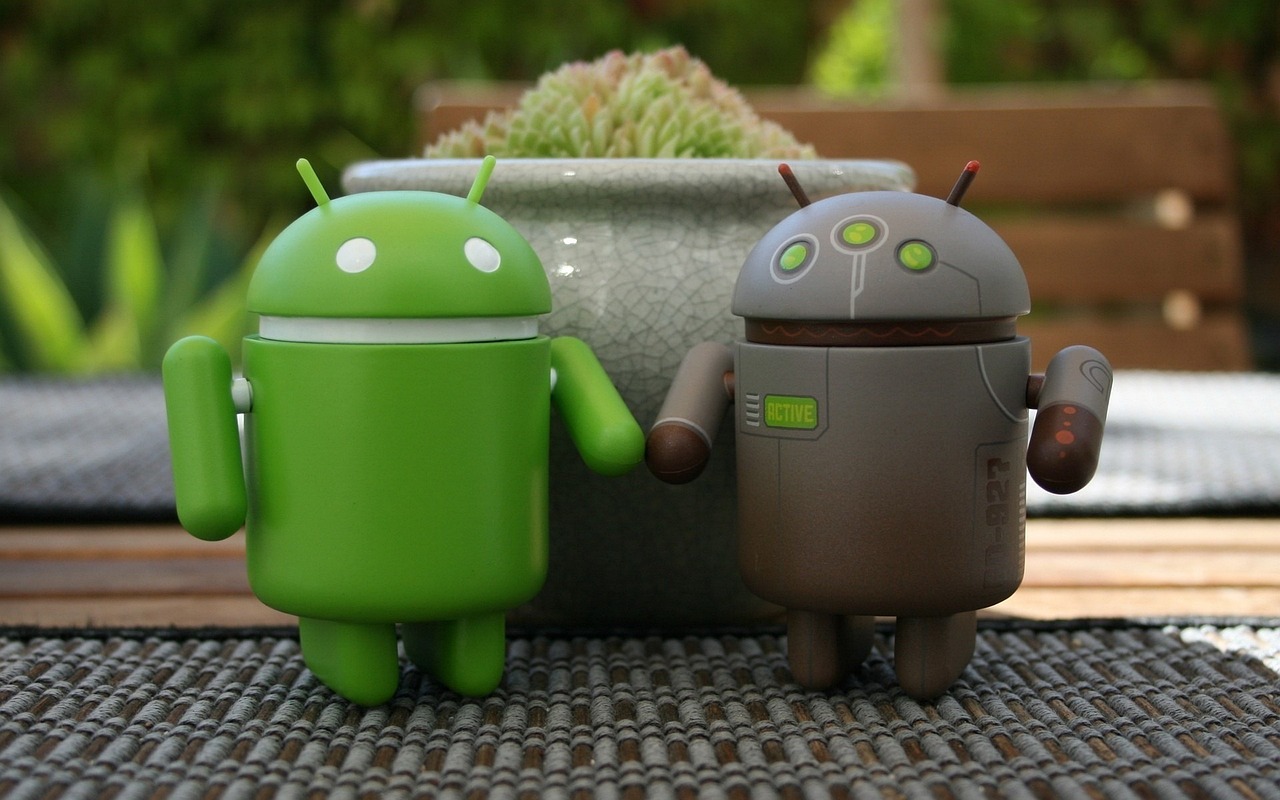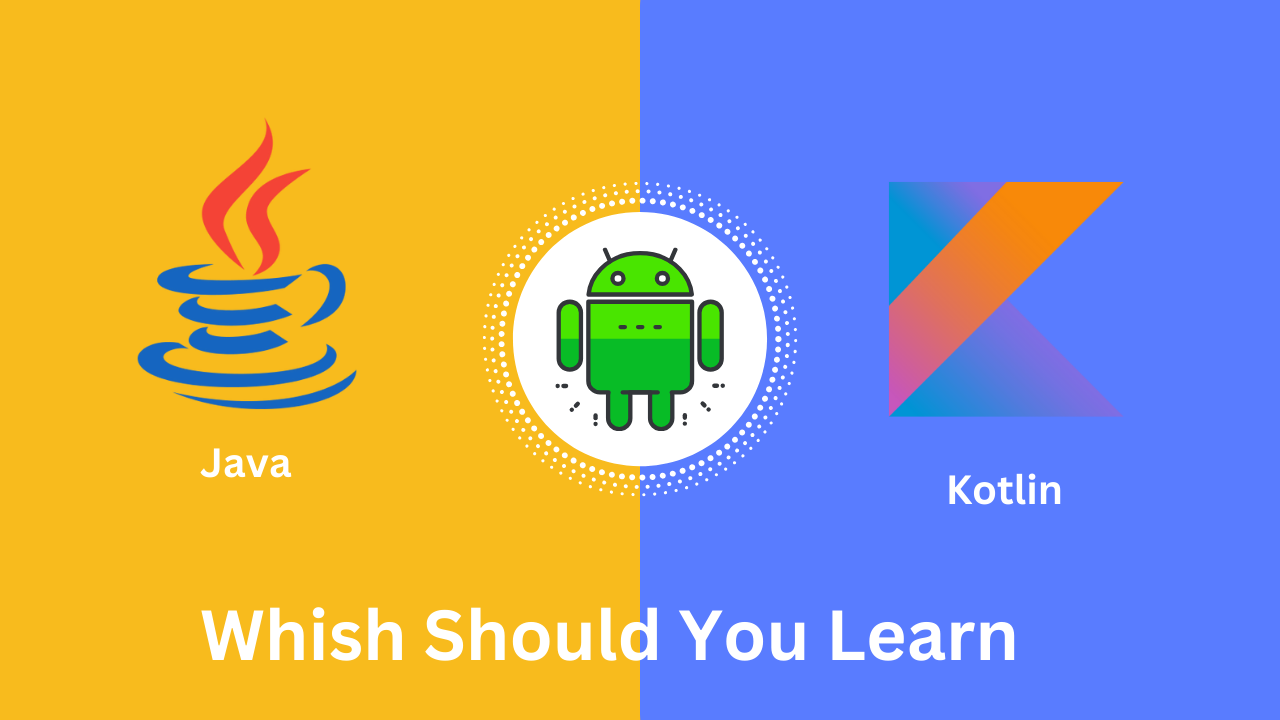With Android continuing to dominate the mobile market, developers are faced with a key question: Android Java or Kotlin : Which Should You Learn? While both languages are used for Android app development, they differ in features, ease of use, and market demand. In this blog post, we’ll help you make an informed decision by exploring the differences between Java and Kotlin across various aspects.
Introduction: Why Android Development?

The Android platform powers billions of devices worldwide, making it a lucrative area for developers to build their careers. Whether you’re developing apps for smartphones, tablets, or even wearable devices, Android development offers endless possibilities. For anyone entering this field, a critical decision lies in choosing a programming language. The two main choices are Java and Kotlin, but which should you learn? Let’s dive into what each language offers.
Table of Contents
- Overview of Java for Android Development
- Overview of Kotlin for Android Development
- Learning Curve: Java vs Kotlin
- Performance Comparison: Java vs Kotlin
- Development Speed and Productivity
- Community and Library Support
- Interoperability: Java and Kotlin Together
- Job Market and Career Opportunities
- Future of Android Development: Java or Kotlin?
- Conclusion: Which Language Should You Learn?
- FAQs
Overview of Java for Android Development
Java has been the primary language for Android development since the platform’s inception. Its long-standing presence has resulted in vast community support, extensive libraries, and a solid foundation for Android projects. Java’s object-oriented nature makes it easier for developers to write scalable and maintainable code.
However, while Java remains a powerful language, its syntax can sometimes feel verbose. This has led many developers to explore more modern alternatives. Still, if you’re looking to work on legacy Android code or want to leverage the rich ecosystem Java offers, it’s a fantastic starting point.
Overview of Kotlin for Android Development
Kotlin, introduced by JetBrains and officially supported by Google since 2017, is designed to be a modern alternative to Java. Kotlin is now the preferred language for Android development due to its more concise and readable syntax. It’s fully interoperable with Java, meaning you can use both languages in the same project without issues.
Kotlin reduces boilerplate code, introduces advanced features like null safety, and enhances developer productivity. With a growing community and Google’s strong backing, Kotlin is quickly becoming the go-to language for Android app development. So, Android Java or Kotlin: Which Should You Learn? The rise of Kotlin definitely puts it in the spotlight.
Learning Curve: Java vs Kotlin
If you’re a beginner, Java might seem easier to grasp initially because it’s been around longer and there are tons of learning resources available. It follows a straightforward object-oriented approach, which many new programmers are already familiar with.
Kotlin, on the other hand, while designed to be easier and less error-prone, introduces some modern programming concepts that can be a bit tricky for beginners, especially if you’re new to functional programming paradigms. However, once you get past the initial learning curve, Kotlin’s concise syntax makes coding faster and easier compared to Java.
Performance Comparison: Java vs Kotlin
When it comes to raw performance, both Java and Kotlin are comparable. Kotlin compiles to Java bytecode, which means they both run on the Java Virtual Machine (JVM) and exhibit similar runtime performance. In real-world applications, the differences in performance are negligible.
However, Kotlin’s modern features allow developers to write more efficient code in fewer lines, which can indirectly improve the app’s performance in terms of maintainability and scalability.
Development Speed and Productivity
In terms of development speed and productivity, Kotlin takes the lead. It eliminates much of the boilerplate code that Java requires, such as getters, setters, and other repetitive tasks. Kotlin also includes advanced features like null safety, which helps developers avoid common mistakes that can lead to app crashes.
This productivity boost is one reason why Google has officially declared Kotlin as their preferred language for Android app development. So when asking Android Java or Kotlin: Which Should You Learn?, if development speed is important to you, Kotlin is a strong contender.
Community and Library Support
Java has been around for over two decades, which means its community support is vast. If you run into any issues, you’re almost guaranteed to find solutions in forums or through the extensive documentation available. Java’s libraries for Android development are also well-established, making it easier to integrate third-party solutions.
While Kotlin’s community is relatively newer, it has grown rapidly, especially after Google’s endorsement. Kotlin’s interoperability with Java means you can still use any Java libraries, so you won’t be limited in terms of resources or support.
Interoperability: Java and Kotlin Together
One of the most significant advantages of Kotlin is its interoperability with Java. You can introduce Kotlin into a Java-based Android project and both languages will work seamlessly together. This is ideal for developers who are already working in Java but want to start adopting Kotlin without overhauling their entire codebase.
This flexibility allows developers to gradually transition to Kotlin, making it a safe and practical choice for teams with existing Java projects.
Job Market and Career Opportunities
In the job market, both Java and Kotlin skills are highly valued. Java has a longer history, so you’ll find a wide range of companies still looking for Java developers, especially for maintaining legacy Android apps. However, Kotlin is increasingly in demand as more companies transition to it for new Android projects.
Google’s strong support for Kotlin means that it’s becoming the standard for Android development, so learning Kotlin can future-proof your career. If you’re deciding between Android Java or Kotlin: Which Should You Learn?, Kotlin may offer more long-term opportunities, but Java is still widely used.
Future of Android Development: Java or Kotlin?
While Java isn’t going anywhere, Kotlin is undeniably the future of Android development. Google’s continued endorsement, combined with the language’s ability to boost productivity and reduce errors, makes it a solid choice for both new and experienced developers.
That said, Java remains important, especially for those looking to work on legacy systems or in environments where Java is the preferred language. But moving forward, Kotlin will likely dominate Android development.
Conclusion: Which Language Should You Learn?
So, Android Java or Kotlin: Which Should You Learn? If you’re just starting out and want to future-proof your career, Kotlin is the clear winner. Its modern features, developer productivity, and Google’s endorsement make it a top choice for Android development.
However, learning Java is still valuable, especially if you’re working with older Android codebases or want to expand your knowledge to enterprise-level applications. Ultimately, both languages are great, but Kotlin edges out Java for new Android projects or click here to read more blogs in programming and coding.
FAQs
- Can I learn both Java and Kotlin?
Yes, you can. In fact, understanding both languages will make you a more versatile Android developer. - Is Java still necessary for Android development?
Java is still widely used and will be relevant for years to come, especially for maintaining legacy applications. - Which is easier to learn, Java or Kotlin?
Java is often considered easier for beginners due to its longer presence in the programming world. However, Kotlin’s modern syntax can make coding easier once you understand its concepts.

